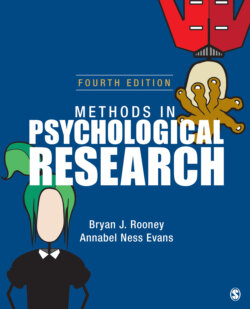Читать книгу Methods in Psychological Research - Annabel Ness Evans - Страница 46
На сайте Литреса книга снята с продажи.
Cross-Sectional Versus Longitudinal Research
ОглавлениеMost research in psychology that looks at age differences is cross-sectional. A cross section of different ages is studied at one point in time. The goal is usually to understand developmental or maturational differences between the ages. A potential problem with this research is that there may be other variables that are confounded with age. This problem has been called the cohort effect because a cohort of same-aged individuals will share variables related to their history. Differences between age groups, then, are confounded with differences in history. Imagine that we asked 30-, 40-, and 70-year-olds about their attitudes about monogamy. If we found that 70-year-olds have much more liberal attitudes, could we conclude that this is a maturational effect? Probably not. People who are in their 70s today spent their formative years during the 1960s, a very sexually free time in our history.
A solution is to study a single age cohort over a number of years. With longitudinal research, everyone has a similar history, but the research is going to take years! This raises problems of cost and the tracking of participants over time.
